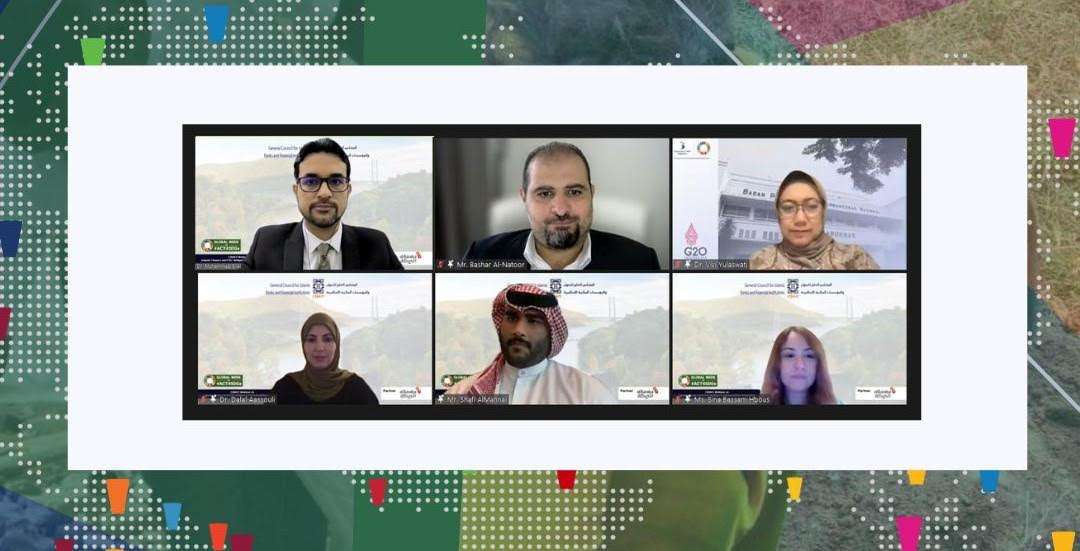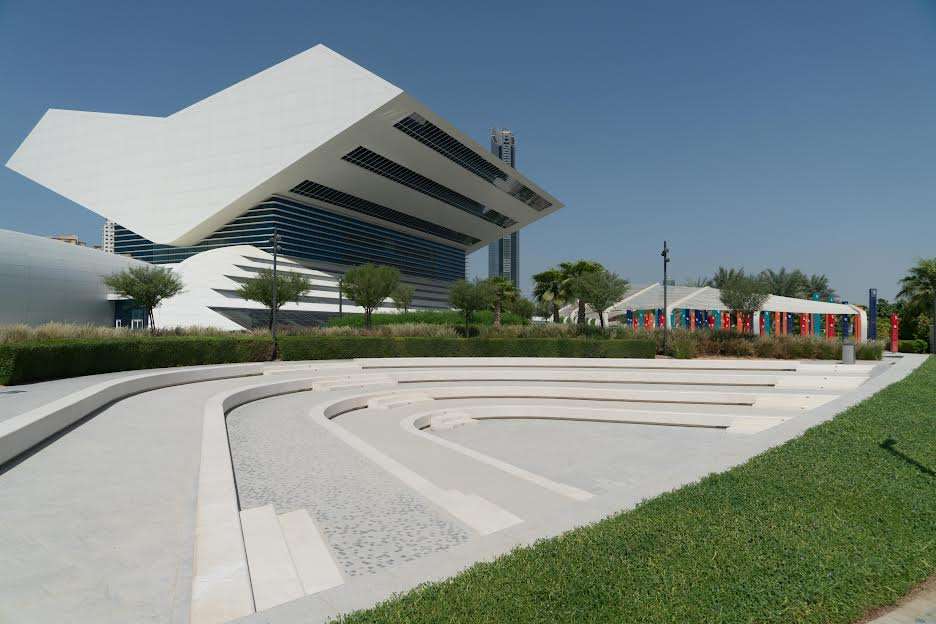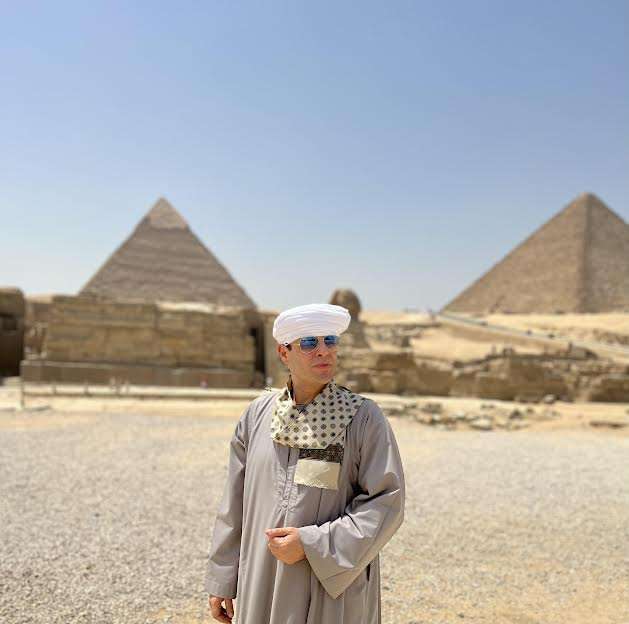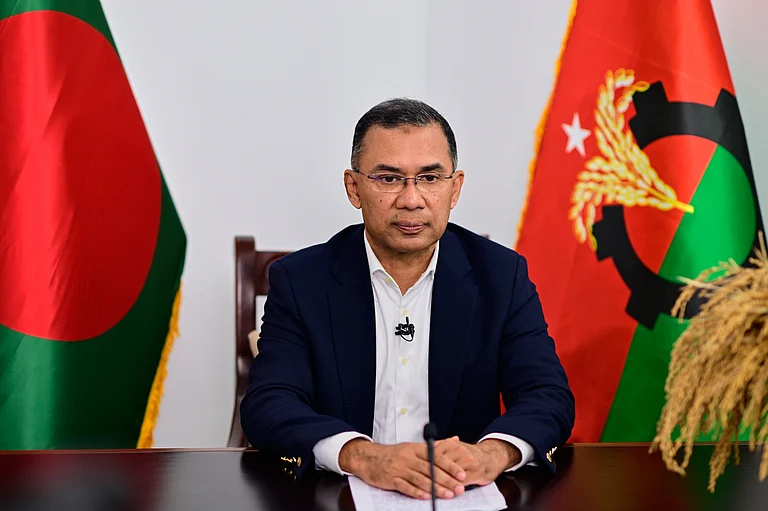Global pandemics and crises, climate change, and social issues are all affecting global economic growth. As a result, financial institutions are increasingly expected to set ambitious sustainability targets and advance environmental, social and governance (ESG) frameworks within their operations.
Manama, Kingdom of Bahrain: The General Council for Islamic Banks and Financial Institutions (CIBAFI), the global umbrella of Islamic financial institutions (IFIs), successfully held on Thursday, September 22, a webinar on “Islamic Finance and ESG: Bridges to Sustainability Integration”.
Global pandemics and crises, climate change, and social issues are all affecting global economic growth. As a result, financial institutions are increasingly expected to set ambitious sustainability targets and advance environmental, social and governance (ESG) frameworks within their operations.
To meet this goal, financial institutions must have a clear understanding of their sustainability footprint in order to develop robust sustainability and ESG strategies with transparent reporting.
CIBAFI Webinar on Islamic Finance and ESG: Bridges to Sustainability Integration is organised in conjunction with the United Nation’s Global Week to Act4SDGs.
The webinar provided an overview of ESG definition, criteria, and key benefits of implementing it. It also sheds light on its progress and key challenges in implementing its frameworks.
The webinar further discussed the strategies for achieving ESG and sustainability integration by optimizing ESG factors and Islamic finance principles, as well as examining their development impacts on financial institutions.
CIBAFI Secretary General, Dr. Abdelilah Belatik inaugurated the webinar. In his speech, Dr. Belatik highlighted that integrating sustainability into an institution’s strategy and operations is a challenge for many financial institutions’ boards of directors (BoDs).
In this context, CIBAFI Sustainability Guide proposed to adopt a top-down approach for sustainability integration in IFIs where the board and senior management should first understand the values and relevance of sustainability to their business.
Dr. Belatik emphasised the importance of fostering a supportive culture in order to drive the sustainability agenda and initiate sustainability-related activities across the finance industry.
The webinar also featured a keynote speech from H.E. Khaled El Mekwad, the Resident Coordinator of United Nations Bahrain.
Following the opening remarks, a panel discussion explored and shared perspectives and experiences of international prominent experts in leading organizations regarding the process of embedding sustainability and ESG frameworks into core strategies of the Islamic financial institutions.
The panelists included: Mr. Bashar Al-Natoor, Global Head of Islamic Finance, Fitch Ratings, United Arab Emirates; Ms. Vivi Yulaswati, Senior Advisor to the Minister, National Development Planning for Social Affairs and Poverty Reduction, Indonesia; Ms. Sina Bassam Hbous, ESG & Sustainable Finance Advisor, Egypt; Dr. Dalal Assouli, Assistant Professor and Program Coordinator, Hamad Bin Khalifa University, Qatar; Mr. Shafi AlMannai, Director of Human Resources & ESG, GFH Financial Group, Bahrain.
CIBAFI Secretary General, Dr. Abdelilah Belatik inaugurated the webinar. In his speech, Dr. Belatik highlighted that integrating sustainability into an institution’s strategy and operations is a challenge for many financial institutions’ boards of directors (BoDs).
The session was moderated by Dr. Muhammad Bilal, Research Economist at CIBAFI. CIBAFI also wishes to thank the webinar partner, Al Baraka Bank – Egypt for its contribution in making the webinar a success.
CIBAFI continues to support the Islamic financial services industry through various activities and initiatives. These initiatives include providing industry stakeholders with a platform to discuss emerging issues, representing the industry at major global financial events, and sharing knowledge through specialized publications and comprehensive training programs.
About CIBAFI:
General Council for Islamic Banks and Financial Institutions is an international non-profit organization founded in 2001 by the Islamic Development Bank (IsDB) and a number of leading Islamic financial institutions. It is an affiliated organ to the Organisation of Islamic Cooperation (OIC). With over 130 members from more than 34 jurisdictions all around the world, CIBAFI is recognized as a key piece in the international architecture of Islamic finance. Its mission is to support the IFSI growth by providing specific activities and initiatives that leverage current opportunities while preserving the value proposition of Islamic finance. CIBAFI office is located at Jeera III, 5th Floor, Office 51, Building 657, Road 2811, Block 428, Manama, Kingdom of Bahrain.
For more information on CIBAFI, please contact:
CIBAFI Secretariat at Phone: +973 17357302, email: media@cibafi.org
*********************************************************************
Readers
These are extraordinary times. All of us have to rely on high-impact, trustworthy journalism. And this is especially true of the Indian Diaspora. Members of the Indian community overseas cannot be fed with inaccurate news.
Pravasi Samwad is a venture that has no shareholders. It is the result of an impassioned initiative of a handful of Indian journalists spread around the world. We have taken the small step forward with the pledge to provide news with accuracy, free from political and commercial influence. Our aim is to keep you, our readers, informed about developments at ‘home’ and across the world that affect you.
Please help us to keep our journalism independent and free.
In these difficult times, to run a news website requires finances. While every contribution, big or small, will makes a difference, we request our readers to put us in touch with advertisers worldwide. It will be a great help.
For more information: pravasisamwad00@gmail.com











